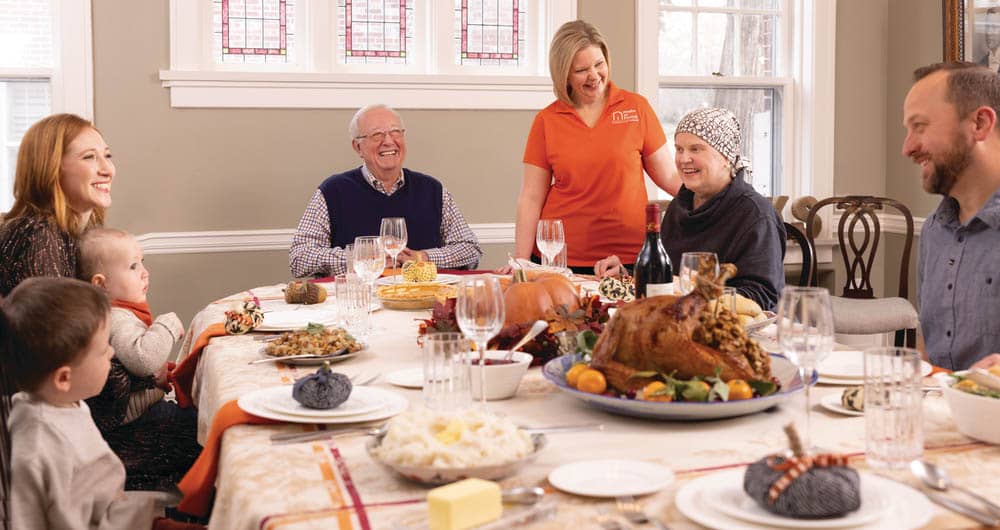

Gratitude and Giving Are Good For Our Health
Thanksgiving marks the commencement of the holiday season, a period not only dedicated to expressing our thanks but also to extending our generosity toward others. Generosity and gratitude have long been credited for helping improve relationships and communities. As we dive deeper into exploring these virtues, we discover a fascinating pattern: Older individuals often exhibit profound generosity, and the emotion of gratitude, when expressed or received, improves our health in surprising ways. Feeling and expressing gratitude are especially important in a caregiving relationship. When a caregiver’s thoughtful care is appreciated and noticed, they feel happier and more optimistic. There are many reasons why older adults are generous and reap the benefits that come with practicing gratitude.
A legacy of giving: Research indicates that older adults are often more generous than younger people. They volunteer more than any other age group, and they often fund charitable causes that will last long past the end of their lives. A 2012 study by the American Psychological Association found that as people age, they are more likely to value service to others and contribute to the welfare of others.
Empathy and experience: With age often comes a reservoir of experiences—joy, sorrow, triumphs, and defeats. These experiences might enhance empathetic understanding toward others’ needs and struggles, thereby boosting altruistic behavior. The 2010 book “Empathy and Moral Development: Implications for Caring and Justice” by Martin L. Hoffman explains how empathy, often deepened through personal experiences, can nurture generosity.
Building a lasting impact: Older adults might also be driven by a desire to leave a positive and lasting impact on their communities. Erik Erikson, a renowned psychologist, defined this as “generativity”—the concern for establishing and guiding the next generation. We see this when older adults establish scholarships for future generations or fight for the rights of children to grow up in a healthy, thriving planet.
Psychological well-being: Gratitude has been consistently linked to psychological well-being. A 2003 study by Robert Emmons and Michael McCullough found that people who regularly journaled about things they were grateful for were more likely to be optimistic about the coming weeks.
Physical health: Surprisingly, gratitude doesn’t just elevate our mental state, but also boosts our physical health. The practice of gratitude has been associated with an array of health benefits, including improved sleep and reduced stress.
Enhanced relationships: Expressing gratitude can strengthen our friendships. A 2014 study outlines that thank-you expressions can enhance the quality and duration of romantic relationships by fostering a cycle of generosity and appreciation between partners.
Boosting immunity: Practicing gratitude may fortify our immune system. A pilot study published in 2015 hinted at a potential link between a grateful disposition and healthier immune system markers in patients with Stage B asymptomatic heart failure.
Generosity and gratitude can intertwine to create a virtuous cycle that enhances relationships and individual well-being. The generosity of older adults, which often stems from a lifetime of experiences and an innate desire to foster a better future, can trigger waves of gratitude among recipients. So, this Thanksgiving, take time to be thankful and give back. It may create a wave of well-being in your community and beyond!
Right at Home Greenville's caregivers help our clients practice their holiday traditions and spread gratitude and joy. Many clients enjoy writing letters and mailing them to friends and family. IF a client is no longer able to walk to the mail box or write, the Right at Home team will be able to ensure their encouraging words are still sent out. Many clients who suffer from memory loss are still able to recall past holiday traditions. Clients will speak about the meals they prepared or took part in while others will speak about the family that came to visit. All traditions are full of joy and help bring a smile to our clients face.




